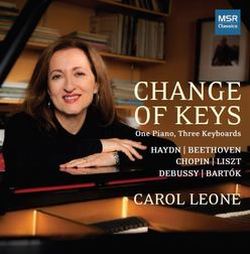The School of Music will be streaming the performances live via their website which can be accessed here.
Details on the times and dates of the performances, repertoire, bios and more can be found here.
|
The Ellswoth Smith International Solo Trumpet Competition is taking place this week, this year being held at the University of Alabama. The competition is held every four years. Six finalists have been selected and will be performing over the next few days.
The School of Music will be streaming the performances live via their website which can be accessed here. Details on the times and dates of the performances, repertoire, bios and more can be found here.
0 Comments
(from a press release)
David Lang premieres his choral work the public domain this Saturday, August 13 at 5 p.m. as part of the 50th Anniversary of Lincoln Center's Mostly Mozart Festival. Inspired by the theme of collective knowledge, the public domain is a work for 1,000 volunteer singers. Lang describes the public domain as "an experiment in how to build a better world." Conducted by Simon Halsey, Choral Director of the London Symphony Orchestra, the public domain is a free and open event, performed by the public, that will take place on Lincoln Center’s Josie Robertson Plaza. Annie-B Parsons will choreograph. Lang looks at darker material in his new one-act chamber opera, the loser, which will come to New York as the opening event of BAM’s 2016 Next Wave Festival, September 7 through September 11, 2016. For the loser, Lang adapted Thomas Bernhard’s novel The Loser (Der Untergeher) into a stage work for solo baritone, concert pianist, and chamber ensemble. Bernhard's novel tells the story of an angry, misanthropic man who struggles to come to terms with the limits of his own talents after an encounter with Glenn Gould. Lang first read Bernhard's novel in 1998, when it was recommended to him by a friend. In Lang’s hands — Lang serves as librettist, composer, and director of the loser — Bernhard’s ranting narrator is a singer standing on an elevated, slender platform in the middle of a dark theater. The orchestra seating is removed and the audience, seated only in the mezzanine, sees the singer in a void with a lone piano hovering in the far distance, sounding a faint echo of the ideal music as embodied by Glenn Gould. (The chamber ensemble is unseen.) This unusual staging takes the singer and makes physical the “gulf that separates him from his world,” says Lang. WFMT in Chicago not only serves one of America's largest markets with classical music 24 hours a day, but also syndicates a significant amount of content to public stations around the country. Announced yesterday, Steve Robinson, long-time General Manager of the station will be leaving WFMT at the end of September.
Local writer Robert Feder shares more here. Pianist Andre Watts has been diagnosed with prostate cancer. He was set to appear in concert with the Philadelphia Orchestra in Saratoga NY on August 17, but has cancelled that appearance.
The Philadelphia Inquirer has a story here. BBC Music Magazine polled 151 conductors from around the world to find out which symphonies they would consider the best ever written. From their responses they compiled a list of 20.
The greatest symphony ever written (according to them)? Beethoven's Symphony no. 3, the Eroica. While the complete list appears to be only in the September issue of BBC Music Magazine, British newspaper The Guardian has the top ten here. In addition, the magazine is asking the public to weigh in on the topic in their #SymphonyWorldCup. Find out how to participate here. Recently this site linked to a story about Myung-Whun Chung appearing in a Korean court to answer charges of embezzlement. The famed conductor has been cleared according to the Korea Herald.
You can read the article in the Korea Herald here. The country of Albania has a National Theatre of Opera and Ballet, but as of now they have no one to run it. The head just quit due to a lack of appropriate funding.
You can read the details here.  Most of us who play the piano have at times wished the keyboard were a little more narrow--reaching beyond an octave can be a problem, and even an octave can be difficult for some. Given the fact that we all have different size hands, why is it that all keyboards are the same? As it turns out, they weren't always so. In the 18th and 19th centuries, keyboards came in various sizes. It was only with the advent of mass production that manufacturers decided on a standard size. Enter Carol Leone. I recently received a review copy of her new disk "Change of Keys--One Piano, Three Keyboards", and as it turns out, she's leading the charge to create different options for the piano. The typical piano keyboard is designed so that the span of an octave is 6.5 inches. Leone has been working with a manufacturer to create alternative sizes, with a span of either 6.0 inches, or 5.5 inches. She plays them all on her new disk--her Steinway D fitted with each of the three for the different pieces on the disk. It's certainly an interesting concept. And by the way, her playing is pretty good, too. The disk is on MSR Classics, and their web site is www.msrcd.com. The Academy of St. Martin in the Fields is seeking a new Executive Director. This individual will oversee the entire operation, reporting to the Board of Directors.
You can find the listing here at the ASMF web site (click on vacancies at the bottom of the page). September 5 is the closing date for applications. |
AuthorI'm a classical radio announcer, blogger, and musician. Archives
April 2022
Categories |